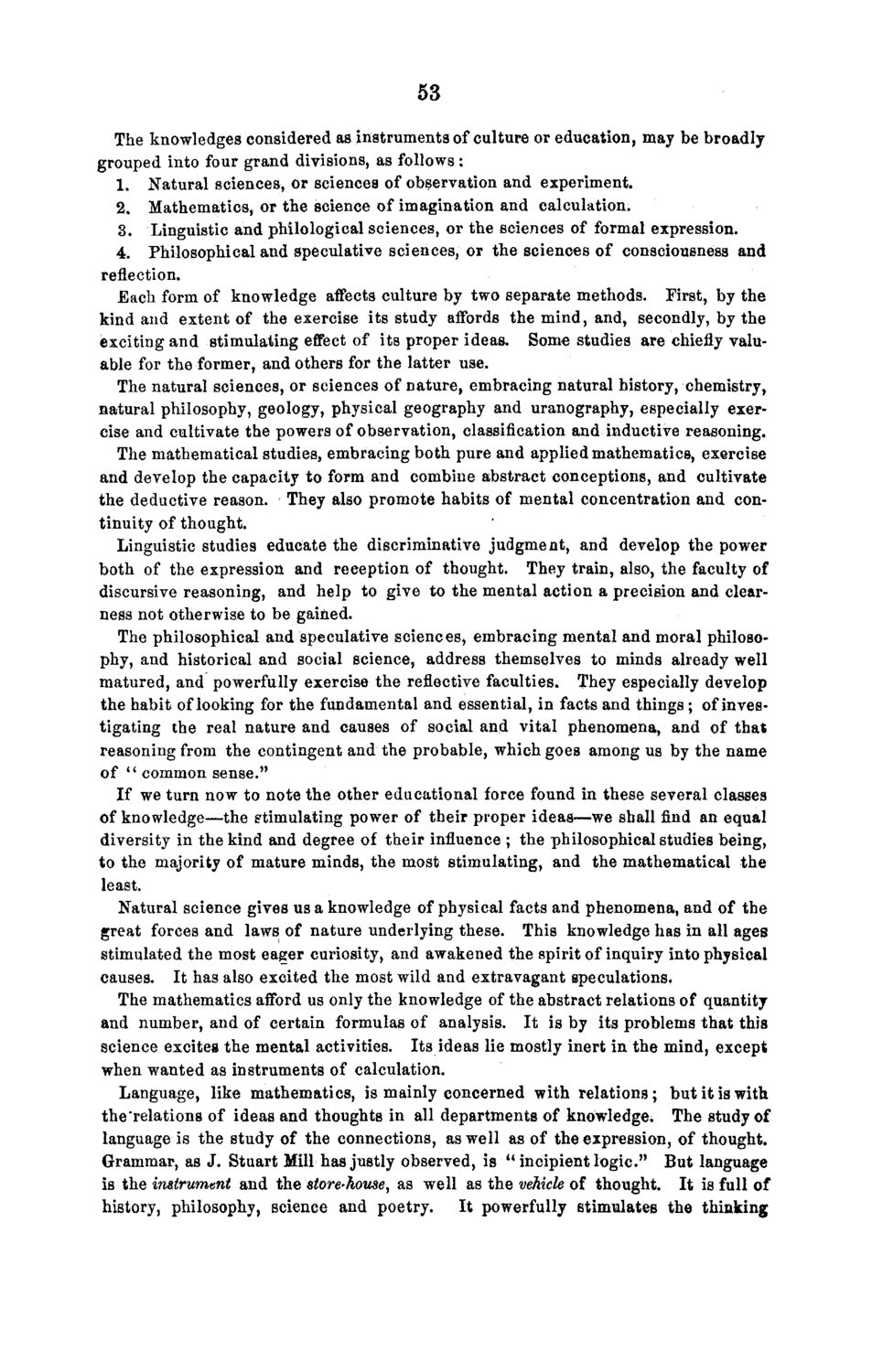| |
| |
Caption: Board of Trustees Minutes - 1868
This is a reduced-resolution page image for fast online browsing.

EXTRACTED TEXT FROM PAGE:
53 The knowledges considered as instruments of culture or education, may be broadly grouped into four grand divisions, as follows: 1. Natural sciences, or sciences of observation and experiment. 2. Mathematics, or the science of imagination and calculation. 3. Linguistic and philological sciences, or the sciences of formal expression. 4. Philosophical and speculative sciences, or the sciences of consciousness and reflection. Each form of knowledge affects culture by two separate methods. First, by the kind and extent of the exercise its study affords the mind, and, secondly, by the exciting and stimulating effect of its proper ideas. Some studies are chiefly valuable for the former, and others for the latter use. The natural sciences, or sciences of nature, embracing natural history, chemistry, natural philosophy, geology, physical geography and uranography, especially exercise and cultivate the powers of observation, classification and inductive reasoning. The mathematical studies, embracing both pure and applied mathematics, exercise and develop the capacity to form and combine abstract conceptions, and cultivate the deductive reason. They also promote habits of mental concentration and continuity of thought. Linguistic studies educate the discriminative judgment, and develop the power both of the expression and reception of thought. They train, also, the faculty of discursive reasoning, and help to give to the mental action a precision and clearness not otherwise to be gained. The philosophical and speculative sciences, embracing mental and moral philosophy, and historical and social science, address themselves to minds already well matured, and powerfully exercise the reflective faculties. They especially develop the habit of looking for the fundamental and essential, in facts and things; of investigating the real nature and causes of social and vital phenomena, and of that reasoning from the contingent and the probable, which goes among us by the name of " common sense." If we turn now to note the other educational force found in these several classes of knowledge—the stimulating power of their proper ideas—we shall find an equal diversity in the kind and degree of their influence ; the philosophical studies being, to the majority of mature minds, the most stimulating, and the mathematical the least. Natural science gives us a knowledge of physical facts and phenomena, and of the great forces and laws of nature underlying these. This knowledge has in all ages stimulated the most eager curiosity, and awakened the spirit of inquiry into physical causes. It has also excited the most wild and extravagant speculations. The mathematics afford us only the knowledge of the abstract relations of quantity and number, and of certain formulas of analysis. It is by its problems that this science excites the mental activities. Its ideas lie mostly inert in the mind, except when wanted as instruments of calculation. Language, like mathematics, is mainly concerned with relations; but it is with the'relations of ideas and thoughts in all departments of knowledge. The study of language is the study of the connections, as well as of the expression, of thought. Grammar, as J. Stuart Mill has justly observed, is "incipient logic." But language is the instrument and the store-house, as well as the vehicle of thought. It is full of history, philosophy, science and poetry. It powerfully stimulates the thinking
| |